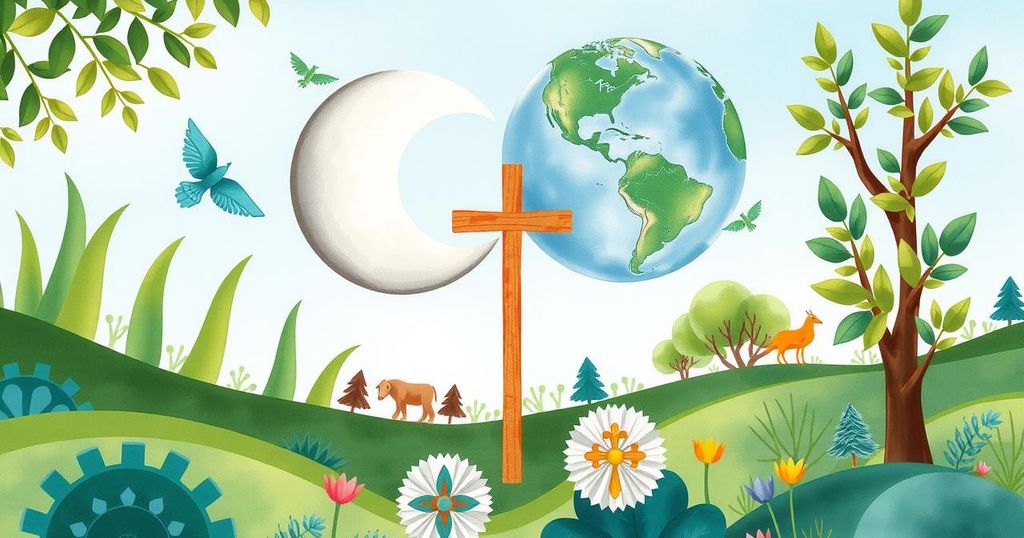Religious leaders in Nigeria convened at the Interfaith Dialogue on Climate Change Summit, organized by CODE, to advocate for strong climate policies amid worsening environmental conditions. Key figures underscored the need for immediate action, highlighting the moral responsibility of faith communities to demand climate justice and drive public engagement. The summit concluded with the release of a report outlining strategies for faith-led environmental action.
In Nigeria, the adverse impacts of climate change are intensifying, exacerbated by pollution, inadequate waste management, and environmental deterioration that threaten local communities. During the Interfaith Dialogue on Climate Change Summit, organized by Connected Development (CODE) in Abuja, a call for immediate action to address the country’s escalating climate crisis was made by religious leaders, civil society groups, and climate advocates. They urged policymakers to adopt specific and effective environmental strategies.
Rev. Fr. George Ehusani, Executive Director of Lux Terra Leadership Foundation, highlighted the need for religious organizations and citizens to advocate for stronger climate policies. He cautioned that inaction today would have grave consequences for future generations, stating, “Religious organisations, civil society groups, and concerned citizens must mount pressure on our policymakers… We cannot continue to pay lip service while our environment is deteriorating at an alarming rate.”
Sheikh Nurudeen Lemu, Executive Director of The Da’awah Institute, emphasized the moral obligation of faith leaders to foster sustainability, stating that there is a vital need for intergenerational justice. “We are facing an urgent crisis… It is what we pass on to the next generation,” he urged, underscoring the shared responsibility of leaders.
Rev. Fr. Attah Barkindo, Executive Director of the KUKA Center, indicated that religious leaders possess considerable influence and can motivate their congregations to engage in climate action. He said, “Religious leaders have millions of followers listening to them weekly. If they understand climate change, they can shape public opinion and drive action,” advocating for climate education to become integral in faith-based discussions.
Hamzat Lawal, Chief Executive of CODE, expressed concerns regarding Nigeria’s restricted access to climate financing, revealing that only 20% of the available funds had been acquired, predominantly through loans. He asserted, “Faith-based advocacy is critical. We must demand justice and ensure Nigeria is central to global climate discussions,” stressing the importance of faith-led initiatives in achieving climate justice.
The summit also marked the unveiling of the Interfaith Dialogue on Climate Change Report & Policy Brief, which presents actionable strategies for faith-led environmental efforts.
The Interfaith Dialogue on Climate Change Summit highlighted the critical role of religious leaders in advocating for stronger climate policies in Nigeria. Emphasizing the urgent need for action, speakers reinforced the moral responsibility of religious organizations to influence their communities and demand climate justice. The gathering culminated in the release of a report that outlines strategies for mobilizing faith-based initiatives in addressing climate change effectively.
Original Source: newscentral.africa






